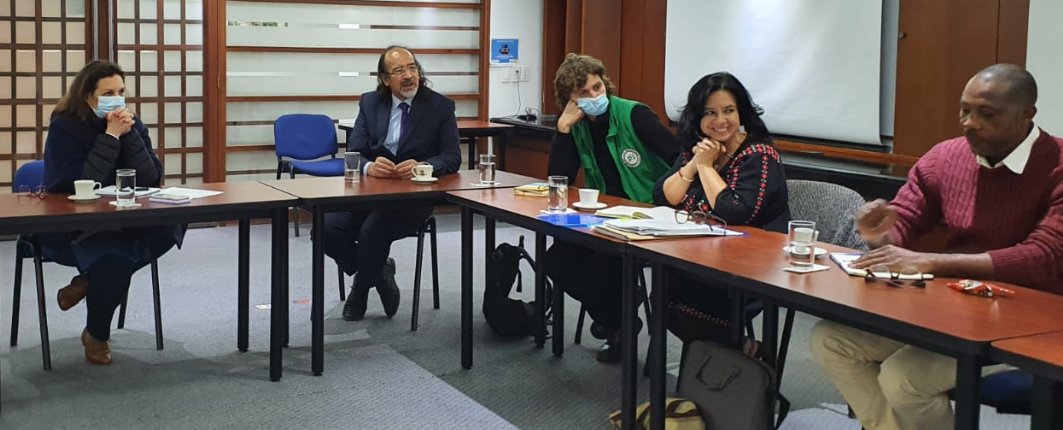
On April 29, ONU Derechos Humanos Colombia (the Office of the UN High Commissioner for Human Rights in Colombia) tweeted: “Representatives of rural communities from #Buenaventura meet with Juliette De Rivero, Representative of the UN High Commissioner for #human rights. #AtThisTime.”

Buenaventura is a coastal seaport city in the department of Valle del Cauca. The port accounts for about 60 percent of all Colombian imports and exports by sea. The city’s population of 460,000 people is about 95 percent Afro-descendant and Indigenous.
In 2017, the port generated about USD $1.8 billion in revenue for the Colombian government. And yet in 2018, the Council on Hemispheric Affairs (COHA) reported: “91% of Buenaventura’s rural population and 64% of its urban population live under the poverty line.”
COHA has also reported: “Buenaventura’s water infrastructure is comparable to one of a low-income country; 71% of residents only have access to potable water eight hours a day and many fishermen are forced to fish in waters contaminated by the city’s sewage.”
In These Times has also noted: “In the early 2000s, water services were privatized, and they have deteriorated steadily since.”
5th anniversary of civic strike
This coming May 16th will mark the 5th anniversary of the start of the 22-day-long civic strike in Buenaventura.
The mobilizations demanded access to sources of employment, housing, drinking water, education, and health, among other economic, social, and cultural rights.
The Inter-American Commission on Human Rights (IACHR) has reported: “On June 2, 2017, civil society organizations and communities reported that heavily armed ESMAD personnel carried out a repressive operation in Buenaventura which included the use of tanks among civilians. Information received by the IACHR also indicates that tear gas was used against peaceful demonstrators, including children, older people, and people with disabilities.”
Ongoing humanitarian crisis
There are ongoing concerns about how state neglect and structural racism are behind the crises of violence and poverty in the city.
On February 22, 2021, PBI-Colombia accompanied Nomadesc on a verification mission meeting on the humanitarian crisis in Buenaventura. The Office of the UN High Commissioner participated in that mission.
In April 2021, Foreign Policy also reported that “resentment simmers among Buenaventura residents over the fact that little money flowing through the port enriches the city.”
That article quotes Danelly Estupiñán with the Process of Black Communities who says: “The national government invests in Buenaventura through the port infrastructure. It does not make investments to the Buenaventura society, to the people of Buenaventura.”
Noting that 95 percent of the city’s residents are Afro-descendant and Indigenous, Estupiñán says: “From our judgment” the lack of investment is “precisely for that reason.”
The Peace Brigades International-Colombia Project has accompanied Nomadesc since 2011 and its president Berenice Celeita since 1999.
Berenice Celeita talks about the civic strike in this PBI video.


